New charges against Janet Eaton's killer revives memories: 'She will always be a part of Bremerton'
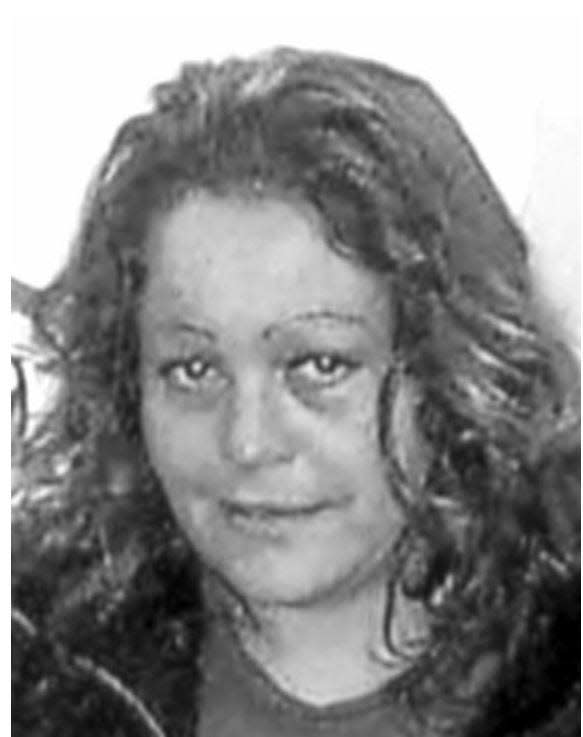
In August 2005, Raven Hudson encountered Janet Eaton on Sixth Street in Bremerton and after a heated exchange of words shot the woman in the face.
In July, six months after being released from prison for Eaton’s murder, Hudson, now 38, was arrested in Seattle’s University District allegedly with two pistols, a large amount of fentanyl and other drugs, and then rammed an unmarked police car.
Investigators claim during the short period Hudson had been out of prison she rose to become a “large-scale drug dealer” in the Seattle area who U.S. Department of Homeland Security agents and Seattle police detectives had been tailing for at least a month.
After her arrest, Hudson told officers she had nearly opened fire on them, thinking at first she was being robbed. She referred to her killing of Eaton, 43, for why she carried guns, two loaded 9mm Glocks, one reported stolen and one with a 25-round magazine.
“I’ve been robbed and beaten so I have them for protection,” Hudson told police, according to court documents.
Among the drugs investigators say they found in Hudson's 2000 Acura were 6,700 fentanyl pills, a highly addictive and powerful synthetic opioid blamed for an increase in overdose deaths.
Though sometimes used by traffickers to increase the potency of low-quality drugs, fentanyl has increasingly been sold as counterfeit prescription pills that can be smoked off tin foil, scraps of which have become common in the sidewalk litter in Bremerton and Seattle neighborhoods.
Hudson was initially charged on July 18 in King County Superior Court, but her case moved into U.S. District Court for the Western District of Washington in late September.
“We took the case federally because of the large amount of fentanyl involved, as well as the stolen firearm with a high-capacity magazine,” said Emily Langlie, a spokeswoman for the U.S. Attorney’s Office.
Last week Hudson was ordered held in federal detention without bail.
On Wednesday, a grand jury indicted Hudson for possession of controlled substances with intent to distribute, possession of a fireman in furtherance of a drug crime and unlawful possession of a firearm.
If convicted of the charges, Hudson faces a mandatory minimum sentence of 15 years in prison, according to court documents.
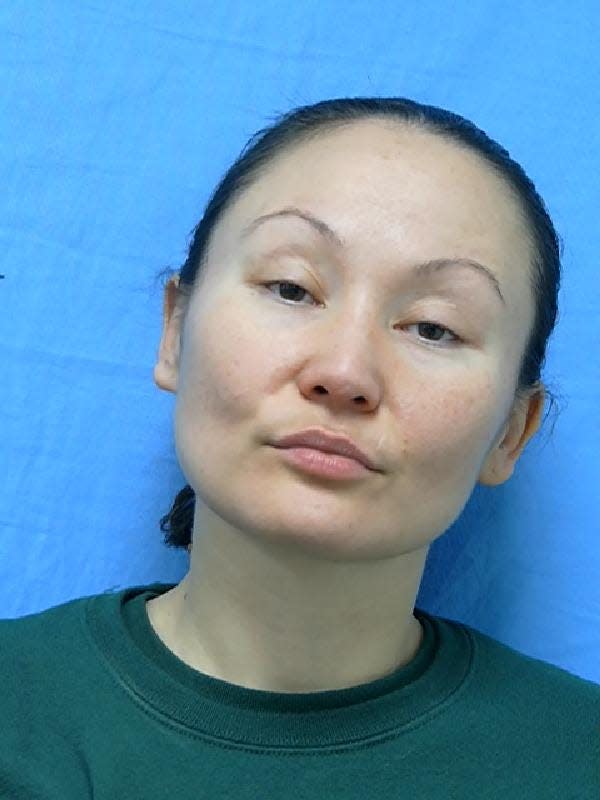
The death of Eaton devastated her children — she had nine — including son Hector “Ricky” Apodaca. Apodaca struggled with crime and addiction until 2017 when he was shot and left to die on a Seabeck road, 11 ½ years after his mother was shot.
A friend of Eaton’s who continues to mourn her death said Apodaca grieved the loss of his mother, who was killed when Apodaca was 19.
“He never did recover from losing his mom,” Jenise Inda said in a phone interview Wednesday.
Talking about Eaton’s murder and the devastation felt by Eaton’s children, even nearly two decades later, remains painful and brings Inda to tears.
“I miss her so much,” Inda said. She keeps a smiling photo of Eaton on her wall from a New Year’s Eve party at Monica’s Social Club. “She’ll never be forgotten. She will always be a part of Bremerton.”
Inda said Hudson should have received nine life sentences, one each for Eaton’s nine children.
“She is a menace to society,” Inda said. “Raven Hudson is a thorn in my side.”
Agents tracked her phone
Hudson was released from prison on Jan. 14, according to state Department of Corrections records, after serving 16 years and two months in custody for Eaton’s murder.
Police first started investigating Hudson in early June when an informant working for police bought drugs from her, according to court documents.
From that sale, police obtained a warrant allowing them to keep surveillance on Hudson’s location through her phone, tracking her movements through June.

“Officers observed Hudson regularly on the move throughout the day and evening, often staying in locations for short amounts of time,” federal investigators wrote in court documents, noting she regularly visited locations known for high-frequency drug trafficking, including motels along Aurora Avenue in North Seattle. “Hudson did not appear to regularly visit any place of employment.”
The morning of July 12, federal agents and Seattle police detectives started following Hudson from outside an Aurora Avenue motel intending to arrest her.
Officers followed Hudson for several hours until she drove to the University District and parked her car on the 4700 block of 15th Ave. NE.
Investigators positioned their unmarked cars around Hudson’s Acura and flipped on their emergency lights.
“Hudson put her vehicle in reverse and rammed into a vehicle occupied by two (federal) agents,” investigators wrote in court documents.
After arresting her, Hudson admitted to having a large quantity of drugs in her car. In addition to the 6,700 fentanyl pills, a tally included in federal court documents found Hudson had with her 25 grams of heroin, more than a pound of meth, 114 grams of fentanyl powder, 11 grams of cocaine, $9,600 in cash, scales and fake identification.
At the time of her arrest, Hudson said she was on her way to buy 60,000 more fentanyl pills and a kilogram of powdered fentanyl, according to court documents.
Hudson also told officers that she had contemplated shooting at their vehicle.
“I thought I was getting robbed,” Hudson told the investigators, according to court documents. “I have PTSD, but once I knew it was the cops I stopped. If it wasn’t the cops, I would have started shooting.”
Investigators also noted: “Hudson further explained that she recently was released from prison for murdering someone that attempted to rob her. She said the victim tried to rob her of drugs and she shot the person in the face. Hudson went on to say that she served 16 years in prison for the murder.”
Hudson’s attorney at Federal Public Defender for the Western District of Washington, Dennis Carroll, said Wednesday he was not prepared to comment on the case.
Altercation turned deadly
Janet Eaton had been drinking the night of Aug. 31, 2005, and into the early morning, with witnesses describing her as “drunk” and antagonizing people.
She and some friends were socializing on the porch of the house across Sixth Street from the 7-Eleven when a friend said Eaton started calling to a woman who had walked out of the store eating an ice cream cone — identified later as Hudson, then 21 — asking if she was Native American.
After exchanging words, Hudson left, telling Eaton, “You’re drunk and belligerent,” according to charging documents from 2005.
Shortly before 2:17 a.m., witnesses said Hudson returned to the porch area, riding a bicycle and wearing a hoodie. A witness said Hudson was known to wear glitter on her face and lived in West Bremerton.
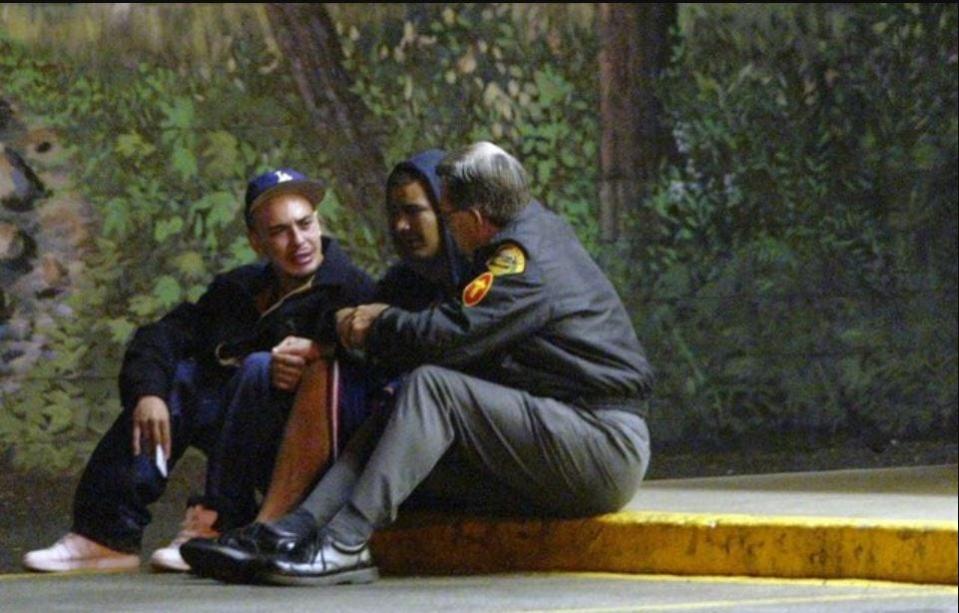
Though one witness, a man, said Hudson was a “known drug dealer” and returned on a bicycle to sell drugs to the group, a friend of Eaton’s with her at the scene, a woman, said Hudson returned to confront Eaton.
Both witnesses told police that Hudson pulled a gun out of the sweatshirt pocket so that the group could see, with one telling police Hudson said: “You’re not going to talk to me that way.” Hudson then put the gun back in her pocket.
The woman told police she took Eaton’s arm and urged her to leave.
“She stated Eaton would not leave and continued to mouth off at the girl,” a Bremerton police detective wrote. The woman said “suddenly the female removed the gun from her pocket and pointed it up at Eaton and fired one shot,” killing Eaton.
“She watched as the female on the bike got back on her bike and quickly rode off in the same direction she came in,” the detective wrote.
The man said the group was telling Eaton to shut up, but she wouldn’t stop, and as Hudson “was getting ready to pull out the dope for the delivery,” he “thought the victim was going to try and rip off the suspect, who pulled out a gun and shot the victim.”
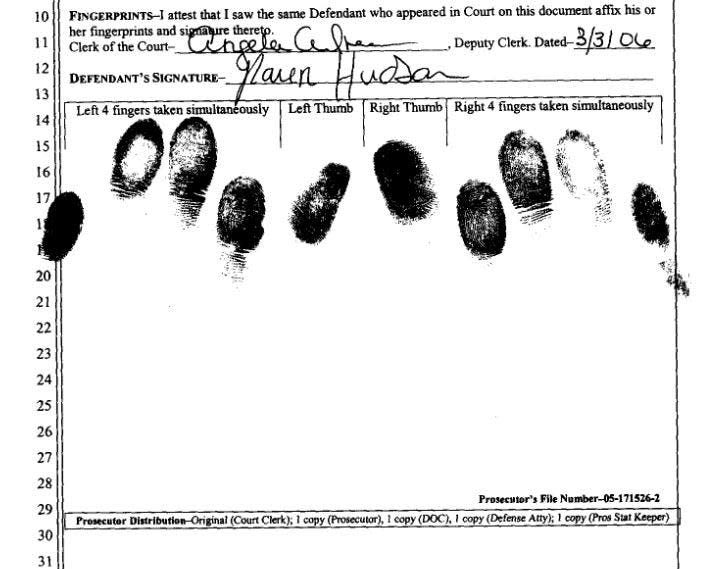
Police identified the shooter as Hudson and spent the next two months searching for her. She was found in Tacoma and arrested during what police described as a “drug transaction.” At the time of her arrest, Hudson was pregnant.
Less than three months before she killed Eaton, Hudson told a Bremerton police officer she was a regular user of meth and was found with syringes, according to court documents. She had multiple felony convictions from Grays Harbor County starting before she turned 20 — she had an address from Aberdeen — including for drug possession and theft of a firearm.
After being charged with Eaton’s death, Hudson pleaded guilty to a count of second-degree murder.
Though she was facing up to 22 years in prison, and prosecutors recommended the shortest sentence allowed — less than 14 years — former Superior Court Judge Leonard Costello sentenced Hudson to 17 ½ years in prison.
Hudson’s attorney for her murder case, Kylie Finnell, who is now the city attorney for the city of Bremerton, said she had not been in contact with Hudson, did not know of her release and declined to comment.
Friend: Argument not over drugs
Inda, Eaton’s friend, was not at the scene when Eaton was murdered, but in the morning heard that a person had been killed and something urged her to look for Eaton. She went to Eaton's residence on Burwell Street and saw the door was open, leading her to believe Eaton was inside and the nagging dread she felt was nothing. Instead, a person inside broke the news to Inda.
“Everybody thought it was over a $20 sack of dope. That wasn’t the reason. Raven didn’t like the way Janet was talking to her. She didn’t like her reaction, or body language,” Inda said, saying it provided some comfort to hear that Eaton’s death was not the result of a conflict over a small meth deal. “That made me feel a little better, not too much better.”
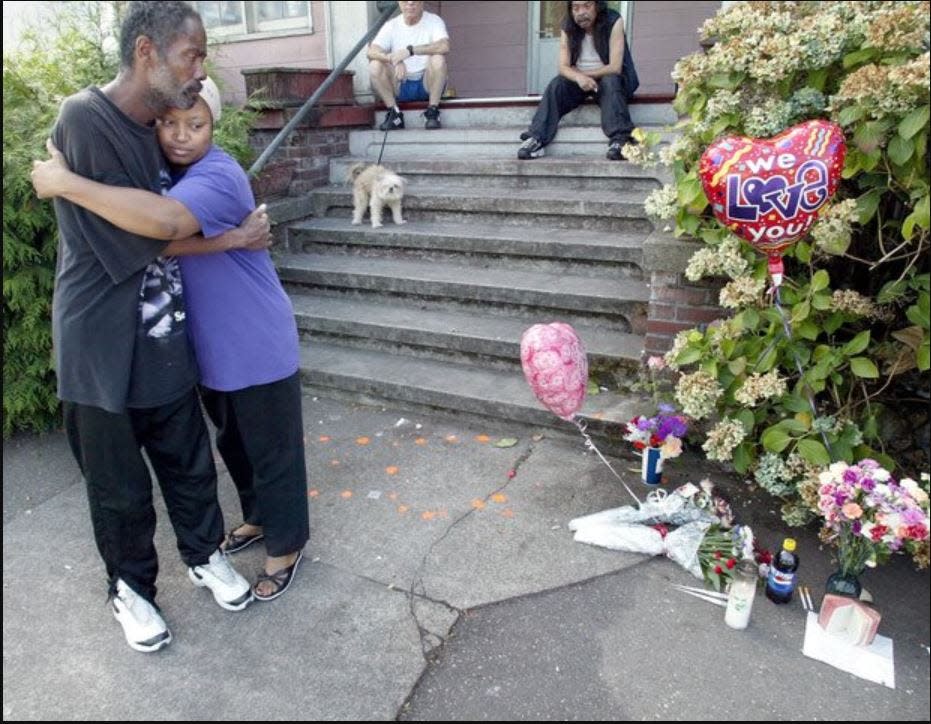
Eaton was friendly and outgoing, the type of person to chat up a stranger.
“She knew everybody,” Inda said.
The other side of Eaton’s extroversion was sticking up for a friend and fearlessness in a conflict.
“Janet did have a smart mouth, she was not afraid to tell you how she feels, she was not afraid to mouth off to anybody,” Inda said, adding: “She mouthed off to me a few times.”
The two women met in 1992 when they became neighbors on Bloomington Avenue and relied on each other over the years, including when Eaton’s mother, Rose Eaton, 73, went missing in 1994 in Chimacum. The two women drove all over Jefferson County looking for her. Rose Eaton’s body has never been found.
Eaton was particularly close to son Ricky Apodaca, with Eaton saying the two shared a bond. Loved ones of Apodaca say he was crushed by the death of his mother and never came to terms with the loss.
“His mom was his rock, and Ricky was her rock,” Inda said. “It’s just a sad thing all the way around. That woman should have never took her away.”
On the night of Feb. 18, 2017, a motorist driving on the 9300 block of Misery Point Road, near Seabeck, spotted Apodaca’s dead body in the road. Near him was a broken glass meth pipe. Like his mother, Apodaca, 30, had been shot in the face.
Andrew Phillip Gilbert pleaded guilty to a count of second-degree murder and was sentenced to 18 years in prison. He told investigators he and Apodaca had been using drugs together and he came to believe Apodaca was going to steal his car. During a confrontation in the middle of the road, Gilbert said he shot Apodaca and drove away.
Inda recalled Apodaca coming to visit her in Port Orchard and trying to set him straight, knowing he had fallen into a gang lifestyle and heroin addiction.
“I told him your mom doesn’t want this for you,” Inda said. “You can be a better person.”
This article originally appeared on Kitsap Sun: New charges against Janet Eaton's killer revives memories: 'She will always be a part of Bremerton'

